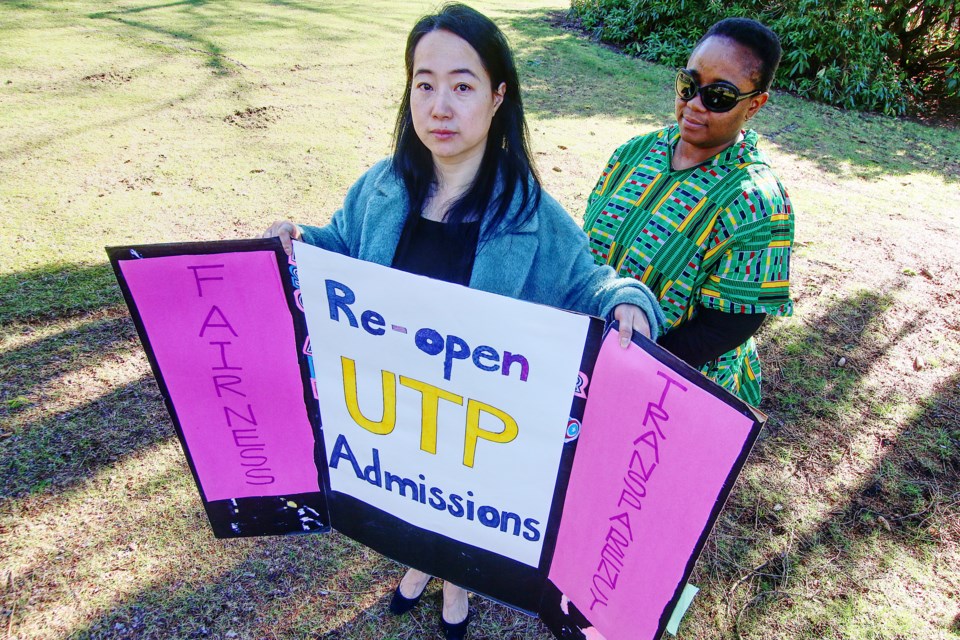A provincial program providing youths that excel in academics a speedy path to university has been paused due to mental health concerns about students.
The University Transition Program for Gifted Students (TPGS, also known as UTP) enrolls 20 of the province’s smartest students aged 13-15 each year and offers a two-year preparation program for early entrance to university studies. It was founded by B.C.’s education ministry, the Vancouver School Board (VSB) and the University of British Columbia.
Those selected can enter UBC following the completion of the two-year UTP program and skip regular secondary education, which takes five years.
In a statement sent out to parents of current UTP students and those who have applied for enrolment next year, the program said it will pause admissions amid a review.
“Several concerns about the program have been brought to the attention of the Ministry, VSB and UBC, and most recently these concerns highlighted negative impacts on students’ mental health and well-being,” said a statement.
“We take these concerns very seriously and have determined that a formal review of the program is required … [we] have decided to pause admission into the [UTP] for the September 2024-25 intake to allow time for completion of the program review and examination of recommended changes.”
There will be no new admissions for the 2024-25 school year and no decisions about the future of the program will be made until the program review is complete, according to a statement from the Education Ministry.
“For privacy reasons, we are not able to provide more information at this time. We appreciate everyone’s patience while this process continues,” the statement said.
Julia Du, chairwoman of the UTP Parent Advisory Council, said the news came as a surprise to parents of existing and potential students – some have finished the first round of the entrance examination, and many parents are concerned about its impact on the current students.
“Because it’s such a small program, there are collaborations between students of year one and year two. If there are no students enrolled for the next school year, it will impact the experience and curriculum of the current year one students once year two students graduate,” said Du.
She is concerned that by pausing the program for a year, it will disrupt the program and curriculum, and have a negative impact on students enrolled in the future as well.
Concerns over mental health
The UTP has provided an opportunity for students with advanced needs who can’t be served in a typical classroom setting to have an accelerated and more customized curriculum.
However, there have been concerns raised over the mental health of students in the program who are exposed to a speedy curriculum at such a young age in a highly competitive environment.
A group of alumni called for improvements to the UTP, including adding more mental health support, in a Facebook group back in 2021, resulting in an online discussion with the program co-ordinator.
Pei Yan, a 2019 UTP graduate, told BIV he can see how some students may be struggling and where the mental health concerns come from.
“The program places a lot of stress upon all its students, given such a tight timeframe, which there are, expected to excel at all sorts of studies … and that the curriculum gets increased by such a high level, which is not the easiest thing for all students,” said Yan.
Yan said there is also pressure from others’ due to high expectations on students in the program, including from parents. He added entering university at such a young age didn’t help with making friends or joining cliques.
But Yan said the benefits of the program far outweighed the challenges for him, and his experience with the program was mostly positive.
“This was a very needed challenge for me in my life as I was not feeling stimulated enough by the regular education system, so I took on the challenge and I don't think it affected my mental health but I would say improved it in some ways,” he said.
“There are a lot of students like me out there. … A big part [of the program] is identifying these students in these situations. I do feel like being able to go to this program, put myself with all these such gifted individuals really helped me grow as a student and put me where I am today.”
Yan, 20, pursued a computer science degree at UBC after graduation from UTP and now works at a top global tech company. Many students in his year are pursing higher education and the program allows them to pursue their dreams much earlier, he added.
Du said the parent groups have been asking the program to offer more mental health support to the students, including reintroducing an on-site counsellor.
“They did not provide it and now they said they need to pause the program due to mental health concerns. As parents, we felt it’s a very inappropriate way to handle this matter.”




